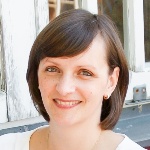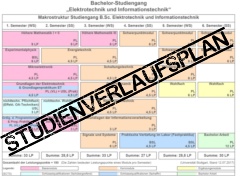Software plays a major role in almost all areas of modern life: it controls cell phones, navigation systems, computers, robots and much more. The Software Engineering degree program emphasizes the constructive aspects of computer science. The subject matter taught to students has many overlaps with that of the Computer Science program. However, the focus in Software Engineering is on applying what has been taught. Software engineering covers the systematic creation of software and the development of concepts for large software projects. It offers methods for software development itself - from analysis and design to implementation, but also models for defining software quality or for testing software. Students learn to design and implement new software and to adapt, restructure and reuse existing software.
The Study Choice Compass B. Sc. Software Engineering provides an additional overview over the study program.
The Bachelor's degree program in Software Engineering is designed for six semesters. The first three semesters form the foundation course, in the last three semesters students specialized themselves. The program is divided into compulsory and elective areas. Courses in the compulsory area are compulsory for all students, while students can choose their own areas of interest within the elective areas.
In the first three semesters, students learn the mathematical, practical and theoretical foundations of computer science and software engineering. Programming skills are acquired and consolidated. From the third semester onwards, these basics are deepened and expanded. Further compulsory subjects are provided for this purpose, as well as two elective catalogs in which you can select your own individual focus. In the study project, the acquired skills are applied in practice, thus creating a link to later professional activity in industry. In the elective area, you also have the opportunity to take an application subject worth up to 12 ECTS credits and thus specialize further for the professional world. At the end of your studies, you will be able to apply all the knowledge you have acquired and write your own scientific paper - the Bachelor's thesis.
In contrast to Computer Science, the Software Engineering degree program places particular emphasis on software-related topics. For example, there is a study project with a total of 18 ECTS credits. In general, it can be said that computer science emphasizes the analytical aspect and thus the theory, while software engineering emphasizes the constructive aspect and thus the application of computer science in practice. However, as there is a wide range in both courses, there will be some Computer Science graduates who are very practice-oriented, while some Software Engineering students will discover the appeal of theory and orient themselves accordingly. So there is no wall between these programs, and the qualifications that can be achieved overlap significantly.
Modules
The degree programme is divided into modules for which the credit points (ECTS). They will be asigned after passing the module examination or after passing all module partial examinations. Modules have a size between 3 and 18 ECTS. The modules comprise content-related courses and extend over one or two semesters at most.
Module handbook
Detailed descriptions of the individual modules can be found in the Module handbook of the respective degree program. However, since the module manuals of the individual degree programmes must be revised and, if necessary, updated every semester, you will find the current version of the module handbook of your degree programme for the current semester in the C@mpus system.
ECTS Credit Points
During the course of study, ECTS credit points have to be acquired by passing modules. The average number of ECTS credits per semester is 30. One ECTS credit corresponds to a workload of about 30 hours. ECTS credits are therefore a quantitative measure of the time required for the study. A total of 180 ECTS credits are required for the Bachelor of Science.
The formal requirements for the Bachelor's degree program in Software Engineering are the general university entrance qualification (Abitur) or a corresponding equivalent qualification as well as qualifying knowledge of German, as the main language of instruction is German.
In addition, English language skills have to be proven as well at least at level B2. Almost always the language level is mentioned on the school leaving certificate. Previous knowledge of programming is not required, but it helps to get started. Sound mathematical knowledge is particularly recommended in order to be able to follow the study contents adequately.
Since the change from school to university is often perceived as difficult, especially in the so-called MINT subjects (mathematics, computer science, natural sciences, technology), the University of Stuttgart offers both preparatory courses and semester-accompanying courses for support in these subjects. Information on this can be found on the pages of the MINT-Kolleg.
The degree program B.Sc. Software Engineering has a restricted admission (100 places). An application is only possible for the winter semester of each year. It takes place online via the C@mpus portal of the University of Stuttgart. Information and forms can be found in the application information of the Central Student Advisory Service. The complete application documents must be uploaded to the C@mpus portal by 15 July of each year. Paper documents are only required for enrollment.
Deadlines
for the winter semester: July, 15
for the summer semester: April, 15 (entrance into a higher semester only)
For all further information, inquiries, individual advice, etc., our student advisory service is at your disposal. For general application questions, the pages of the Registrar's Office will also help you.
Software engineers are currently in high demand. With their knowledge of project management in particular, they can work in a wide variety of sectors. There is no longer an industry without IT support, so software engineers are needed in all sectors, such as information and telecommunications technology, banking and insurance, mechanical engineering and the automotive industry, medical technology, education, etc.
Software engineers can be employed as software developers and then develop new software or enhance existing software. As software testers, you test software for functionality, user-friendliness, stability and security. As a software consultant, you will assist customers or their employers in selecting suitable software. The job description of an IT security specialist, who is responsible for the security of a company's IT architecture, is also becoming increasingly important.
A university career is recommended if an above-average interest in research topics is discovered during the course of study program. In this case, Bachelor's graduates can deepen their academic training in a subsequent Master's degree program (see next section) in order to acquire the content requirements to start a doctoral thesis.
A good Bachelor's degree qualifies for a Master's degree program in Germany and Europe, especially for the Master's programs in the Department of Computer Science at the University of Stuttgart.
A Bachelor's degree is one of several prerequisites for an admission to a Master's program. Admission can also take place conditionally, i.e. previous to the successful completion of the Bachelor's degree. Currently, there are the following Master's degree programs in the Department of Computer Science:
- M.Sc. Informatik
- M.Sc. Software Engineering
- M.Sc. Artificial Intelligence and Data Science
- M.Sc. Computer Science (English program)
- M.Sc. Computational Linguistics (English program)
- M.Sc. Autonome Systeme (in cooperation with the Department of Electrical Engineering and the Faculties 4 and 7)
- M.Sc. Information Technology (English program; in cooperation with the Department of Electrical Engineering).
The four-semester Master's programme usually comprises 120 ECTS credits; its contents are research-oriented. The Master's degree is generally the prerequisite for a doctorate and further scientific work at the university or at any other research institution.
Ansprechpartner zum Studiengang Software Engineering

Katrin Schneider
Dr.Program Manager, Department Manager & Erasmus Coordinator of the Computer Science Department
- Profile page
- +49 711 685 88520
- Write e-mail
- Hint: Due to the application processing the office is closed until 28.07.2025 (including).




